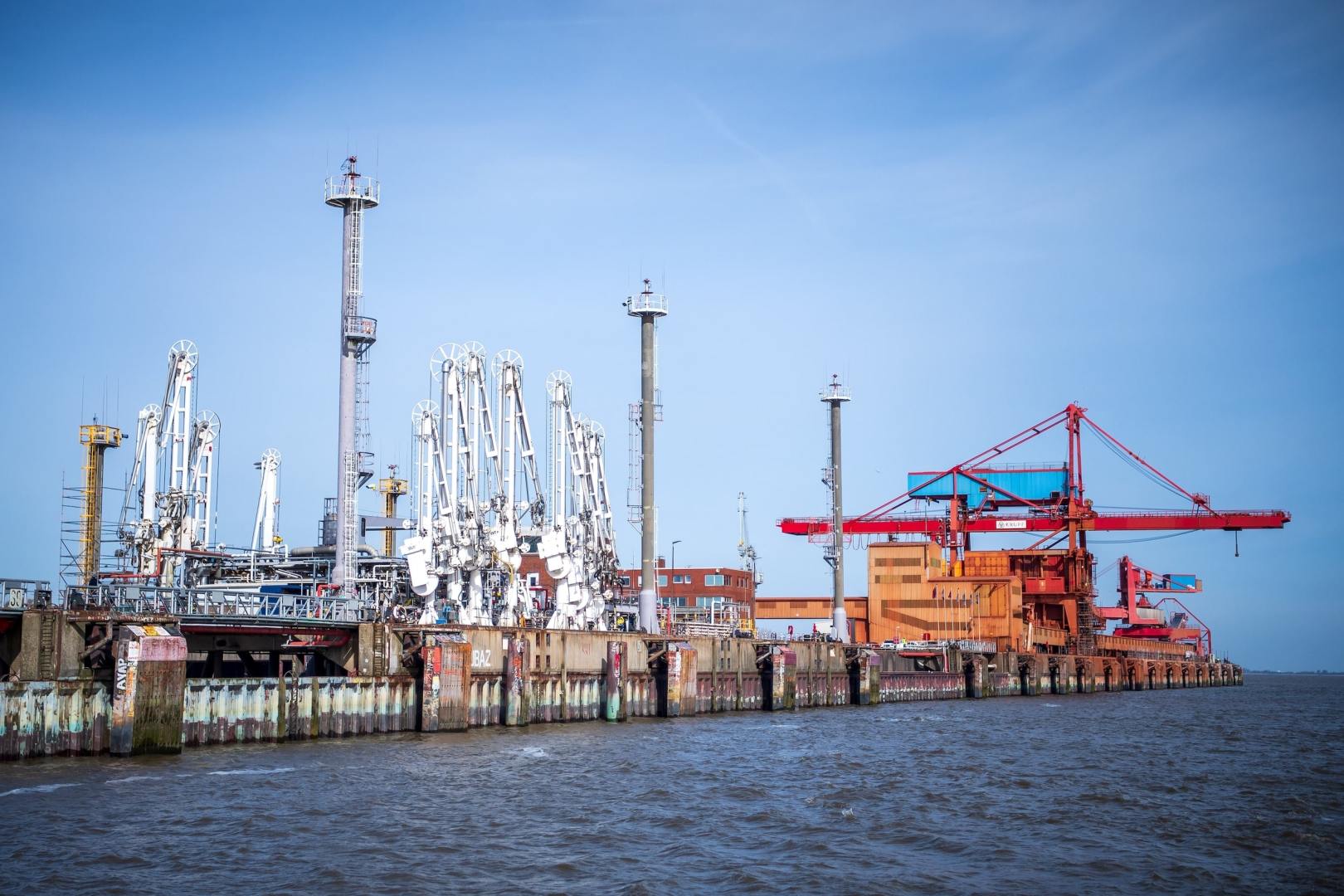
Commentary
-
Our commentary partners will help you reach your own conclusions on complex topics.
Hey everyone, Peter Zeihan here coming to you from New Zealand on the if SMIS peak trail just came down off the summit where it was it breezy, negative five degrees centigrade, complete with what was that called, again, grapple, grappling, and wind, it was no fun at all. Anyway, we found a nice spot with a backdrop here, I want to talk to you about what’s going on with energy in Europe. Now in the aftermath of the Ukraine war, we all know that between damage to pipelines and boycotts, and shut offs on the Russian side, and war damage that the Europeans are using a lot less natural gas from Russia and Russia was their primary supplier providing the content with about a quarter of the total natural gas. And in the case of Germany, specifically over 40% Coming from a single pipeline. Now, for those of you who’ve been following me for a year, you know that I was really concerned that over the winter natural gas was going to just not be available. Because if you look at historical trends when it comes to storage, and pricing and usage, it looks pretty dire. And in fact, in the aftermath of Nord Stream being blown up back in September, we saw natural gas prices go up by a factor of 567. And at one point, they were about $70 per 1000 cubic feet. Apologies for those of you who speak metric, most of my audience is American blah, blah, blah, anyway. But over the winter prices have plummeted to historic lows, now three things have happened that have enabled that to occur and to prevent it just a complete meltdown in Europe or freeze up I guess. Number one, the Europeans especially the Germans shut down most industrial demand. So they just stopped smelting aluminum and steel and stopped fabricating petrochemicals and fertilizers. That is something you can sustain, but only at the cost of absolutely massive damage to your economic system. This is more of a problem for Germany than the rest, and it’s a problem for everybody. But for the Germans, the petrochemical systems that they use are fueled by natural gas and those petrochemical outputs then go to the base materials for their manufacturing sector. So by shutting this stuff down, they are now dependent upon intermediate products that come from a continent away, which are not nearly as reliable and are much higher cost. So the capacity, the profitability, the sustainability of the entire German industrial model is now in severe doubt. And in the best case scenario, the Germans probably only have about two years left that they can operate like this, assuming nothing else goes wrong. Second, the Europeans paid 56789 times the prices that they were paying before in order to tap natural gas and liquefied form. Now, natural gas is kind of hard to move, it’s a gas, you have to have a pipeline system that links production, to transport to distribution to usage all at the same time, because storage is relatively expensive. And the Europeans were obviously dependent on the Russians for that. But if you have a lot of extra infrastructure, you can add a point of export near a point of production. You can chill this stuff down basically with a giant freezer to negative 300 Odd degrees and make natural gas and actual liquid and then ship the liquid like you would any other liquid although specialized tanker. And then once you get it to the end destination, you can warm it back up re gasified and pump into your system per normal. And Europeans tapped the global market for that at a scale we have never seen the Europeans do before. And they paid through the teeth to do that LNG on average costs about triple what the gas cost because of the costs of cooling and transport and regasification. Excuse me. But it was either that or not have power. So the Europeans globally did that. And that triggered a series of energy problems all around the world, especially in countries like Japan, and Korea and Taiwan, who normally rely on LNG as their primary source of energy. Okay, so that was the second thing. The third thing is they got really lucky. Temperatures for the last 910 weeks across all of Europe had been 20 to 30 degrees above historical average, it has been the warmest winter on record. And in that sort of environment, demand for natural gas for heating just hasn’t been as robust as it normally is. Now, the problem for the Europeans is none of these things are really replicable. I mean, you can’t count on Mother Mother Nature being that nice more than one year in a row. The the Russian supplies that are piped aren’t coming back this summer, which is normally when the Europeans would refill their stocks. So the only way that they can refill them is to go back to the international market and tap even more LNG, but it takes five to seven years to build an LNG liquefaction facility. So global supplies are as good as they’re going to get for the appreciable future. And they could keep all of their industry offline in order to reduce demand that might be their only option. But that comes as a critical economic cost over the long term, not just in terms of competitiveness, but the very existence of some of these heavy manual Entering sectors. So no good solutions. The Europeans dodged several bullets this year, and they should consider themselves very, very lucky. But we are only at the beginning of a multi year transition to what is next. And the Europeans were simply fortunate that they have a little bit more time to work on other things. Oh, yeah, one more thing that helped the Europeans out. If you remember back in November, December in January, that’s when the Chinese were imploding over COVID. We still don’t have good numbers. But assuming that the COVID strain that the Chinese were dealing with matches what the antivaxxers the United States suggested was the actual authority rate for COVID They lost a million people. And in that period, economic activity basically crashed. So for roughly three months, the Chinese were not importing a lot of liquefied natural gas themselves. At the same time, the Europeans desperately needed whatever molecules they could get. So we had a three month period where natural gas prices globally in the liquefied market was just weird, and it benefited the Europeans the most you could possibly imagine. Done
-
Hurricane Helene hits US coast, Appalachia and beyond
Hurricane Helene hit Florida and Georgia overnight between Sept. 26 and 27 as a Category 4 hurricane, and accompanying storms will continue reaching deeper into the continental United States today. Dangerous flash flooding from the hurricane, known as storm surge, was some of the worst flooding that the Tampa Bay area has ever seen, and… -
Israel holds upper hand against Lebanon, Hezbollah and Iran
On Wednesday, Sept. 25, Hezbollah launched a ballistic missile at Tel Aviv in retaliation for Israel’s explosive pager attack that blew up devices across Lebanon. Although Israel’s defense systems intercepted the surface-to-surface missile, the attempted strike on Tel Aviv marked a significant escalation by Hezbollah. Since the siege on Gaza began, shortly after the Oct. 7, 2023,… -
The Sinaloa Cartel civil war
Fears of a civil war within the Sinaloa Cartel are growing as violence between competing factions within the cartel continues. The Mexican Army has dispatched around 600 elite troops to Sinaloa to help quell those fears, in addition to roughly 2,200 regular soldiers and National Guard. Watch the above video as Straight Arrow News contributor… -
New Ukrainian weapons hit Russia where it hurts
Ukrainian drones struck a major Russian ammunition depot, triggering a massive explosion that was captured on camera. According to the Ukrainian military, 2,000 tons of munitions had arrived at the depot before the attack. Over the past two years, Ukraine has significantly increased its domestic drone production, allowing it to scale up attacks on military… -
Weighing social costs vs. economic benefits on immigration
Global human migration is one of the defining elements of our current historical era, according to the United Nations. Migrants face both the incentives to leave — forced out by climate change, crime and corruption, extreme poverty or violence — and incentives for where to go, based on available job opportunities and so on. Migration…
Latest Stories
-
 Dept. of Defense
Dept. of Defense
A return to the Cold War? UK poised to house US nuclear weapons yet again
-
 Getty Images
Getty Images
Melania Trump backs ‘Take It Down Act’ targeting AI deepfake, revenge porn
-
 Getty Images
Getty Images
Top FBI official in NY retires amid apparent conflict with Trump admin
-

How US crypto holdings compare to other nations
-
 Getty Images
Getty Images
Israel proposes alternative plan for hostage deal with Hamas
Popular Opinions
-
In addition to the facts, we believe it’s vital to hear perspectives from all sides of the political spectrum.
Latest Opinions
In addition to the facts, we believe it’s vital to hear perspectives from all sides of the political spectrum. We hope these different voices will help you reach your own conclusions.
The opinions published in this section are solely those of the contributors and do not reflect the views of Straight Arrow News.





















Latest Commentary
We know it is important to hear from a diverse range of observers on the complex topics we face and believe our commentary partners will help you reach your own conclusions.
The commentaries published in this section are solely those of the contributors and do not reflect the views of Straight Arrow News.
Dr. Frank Luntz
Pollster and Political Analyst‘Biased’: What Americans think of ‘mainstream media’
‘Getting rid of them’: Americans discuss Trump and immigration
‘Woke’: Why some Biden 2020 voters backed Trump in 2024